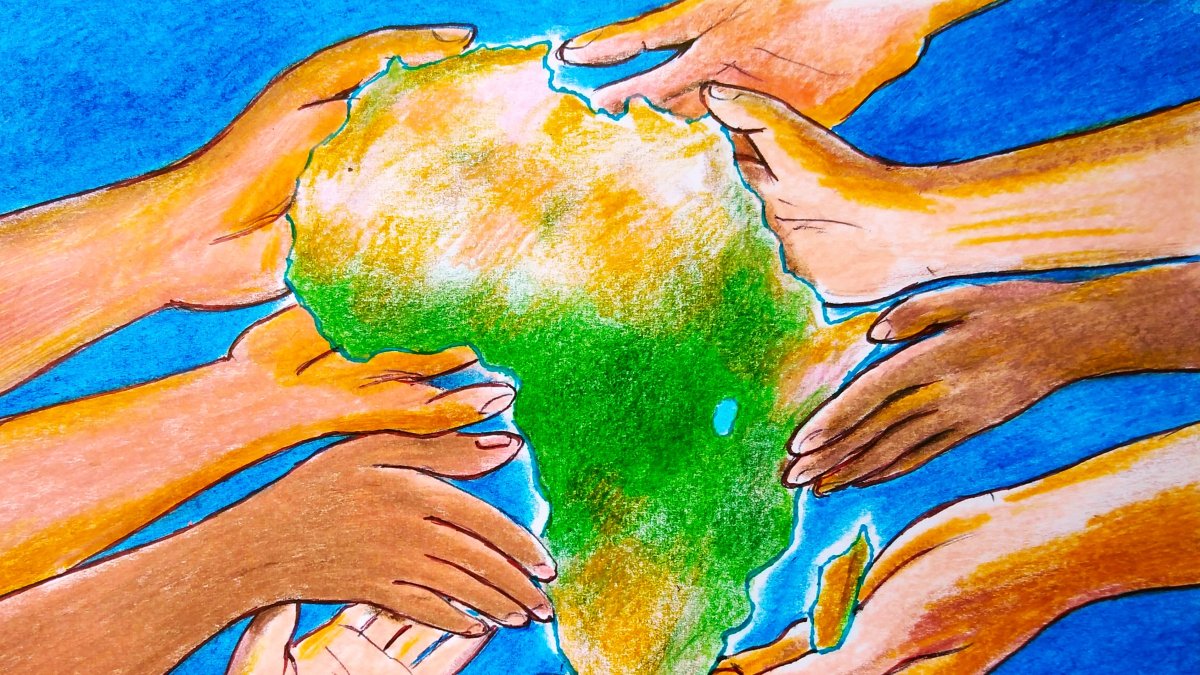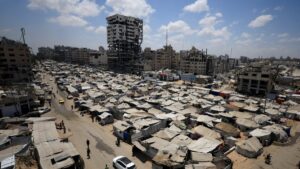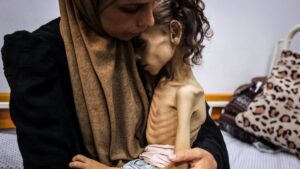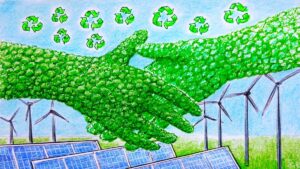Climate change poses enormous challenges to the survival of human beings and economic development. The issue has become an important talking point of governments, nongovernmental organizations (NGOs), researchers and academics for about half a century. Following the emergence of climate change as a pressing issue for the international community, formal climate change negotiations began in 1979. Since then, it has been argued that resources and activities aimed at mitigating climate change are key bargaining tools for countries. Hence, considerable progress has been made in the climate change treaty regime in identifying key issues, setting targets and establishing mechanisms to deal with problems. Recognizing the dangers posed by climate change-induced global warming, the United Nations General Assembly adopted Resolution 43/53 in 1988 to establish the Intergovernmental Panel on Climate Change (IPCC).
The world is experiencing the impacts of climate change on a daily basis, from the North to the South and from the West to the East. People across the globe are exposed to freezing temperatures, high heat waves, scorching sun, flooding, drought, desertification and insect infestations in a recurring manner. The rise in temperature to an unprecedented level, as well as other climate-related issues, is caused by human activities that contradict natural processes, which exacerbate greenhouse gas emissions that trap heat and significantly contribute to global warming and the greenhouse effect.
Additionally, global warming has led to the melting of Arctic ice caps and glaciers, which could cause rising sea levels, increased ocean acidity and temperatures, as well as frequent heat waves and droughts. The predicament of climate change also has a direct impact on agricultural activities and food security, environmental degradation, loss of biodiversity and the occurrence of different variants of pathogens that threaten the survival of humanity. As climate change and development are intertwined subjects, the poor, who are the most vulnerable group in society living in developing countries, are highly affected by climate change.
The Conference of the Parties (COP), representing 195 countries, serves as the supreme body of the United Nations Framework Convention on Climate Change. Cognizant of the difficulty of global warming, the first meeting of the COP was held in 1995 in Berlin. Preceding that, the international community conducted approximately 29 COP on yearly basis, of which COP29 was held in Baku, Azerbaijan, in 2024. However, concrete measures that bring a real difference towards fighting climate change have not yet been implemented. The principle of common but differentiated responsibility has not yet come into effect in terms of emission reduction, funding, and the provision of technologies for mitigation and adaptation.
Thus, the impact of climate change is growing at an alarming rate, causing massive destruction to infrastructure and socioeconomic development of the people. Experiencing these enormous predicaments and the imminent danger posed to humanity, some of the advanced countries that contribute significantly to greenhouse emissions and environmental pollution have shown the audacity to withdraw from the Paris Climate Agreement, signed by nearly 200 countries. The agreement serves as a declaration of commitment to reduce greenhouse gas emissions, limit the rise in temperature to below 2 degrees Celsius (3.6 degrees Fahrenheit), and provide financing for developing countries to reduce their vulnerabilities.
Africa’s climate change efforts
While Africa contributes less than 4% to climate change, it is the continent most heavily impacted by its effects. However, African leaders, under the auspices of the African Union (AU), have begun to take courageous decisions to address the impact of climate change on the ecosystem. Based on the decision of the AU Summit, Africa established a platform to discuss climate agendas, including efforts made by individual African countries to combat the impact of global warming.
As a result, the first African Climate Summit (ACS) was held in Nairobi in 2023, focusing on challenges and prospects of the African continent regarding climate adaptation and mitigation. The summit also assessed the achievements registered so far in African countries through their own financing and identified feasible actions in the areas of mitigation, adaptation, technological innovation and ways to mobilize financial resources.
To sustain the efforts made in combating climate change, the Second Africa Climate Summit (ACS2) will be held in Addis Ababa, Ethiopia, from Sept. 8-10, 2025, under the theme “Accelerating Global Climate Solution and Financing for Africa’s Resilient and Green Development.” Ethiopia’s significance on the African continent is so immense that the African Climate Summit in Addis Ababa will draw significant international attention.
During the three-day deliberations, the summit will address major objectives, including showcasing the African Solution for climate action, unlocking scalable climate finance and crafting a common African position for COP30, the G-20 and the United Nations General Assembly (UNGA) negotiations. At this important summit, between 21,000 and 25,000 participants are expected to attend from diverse backgrounds, including heads of state and government, ministers, representatives from international organizations, the private sector, academia, civil society, global media and think tanks.
The Intergovernmental Panel on Climate Change (IPCC) report indicates that sub-Saharan Africa has experienced a 34% decline in agricultural productivity due to climate change-induced problems. Additionally, the study report suggests that by 2030, the amount of funding required for mitigation, adaptation and technology will be approximately $3 trillion. However, the financing received from 2021 to 2022 is only $30 billion. This indicates that there are significant gaps in funding to address the climate challenges, priorities, and needs of the African continent.
Despite the challenges, countries in Africa are investing a large sum of money from their own coffers to address the effects of climate change in areas such as reforestation, developing technology-based solutions and the development of clean energy. To site a few, Ethiopia in its green legacy initiative planted over 40 billion tree seedling, Kenya on its part committed to cover its energy demand 100% from renewable energy, the conservation of the Congo basin and the Great Green Wall Initiative to restore degraded land and protect the expansion of the Sahara desert are a glaring achievement recorded in fighting the impact of climate induced problems. These climate actions flip the old narrative that bashes Africa, demonstrating Africa’s leading role in combating climate change on the global stage.
Ethiopia takes concrete action
Climate change has become a major global threat, recognized as one of the most pressing environmental challenges facing humanity. Ethiopia is among the African countries hugely affected by climate-induced challenges, such as persistent drought, inundation of floods, land degradation, loss of biodiversity and insect infestation. However, under the leadership of Prime Minister Abiy Ahmed, the Ethiopian government launched various mitigation and adaptation programs, including the Green Legacy Initiative, which was introduced in 2019.
Green legacy initiatives play a pivotal role in restoring the ecosystem and mitigating the impact of climate change on people’s livelihoods. Recognizing the danger posed by climate change, Ethiopia has planted over 40 billion tree seedlings of various types across the country in the past seven years to create resilience and sustainability. This summer, Ahmed launched the annual tree-planting program to plant 7.5 billion tree seedlings. As a result, Ethiopia managed to plant over 700 million seedlings in a single day, mobilizing nearly 30 million people from all walks of life and surpassing its own record.
As Ethiopia champions green development, the government has taken a bold decision that could motivate other countries to follow suit. Enacting a law that promotes investment in the manufacturing and importation of Electric Vehicles (EVs) while prohibiting the importation of fuel-powered cars is one of the earth-shaking decisions that demonstrates the government’s full commitment to leave its own legacy.
In addition to the severe measures taken to meet the burgeoning energy demand and ensure energy security, the government is investing a substantial amount of money to generate electricity from clean sources, such as hydropower, wind, solar, and geothermal. The completion of the construction of the Ethiopian Grand Renaissance Dam (GERD), the biggest dam in Africa, built on the Blue Nile (Abay) is a clear showcase for Ethiopia’s hope to march a long journey to become anchor state in the field of energy diplomacy in the region. As part of regional integration, currently, Ethiopia is exporting its clean energy to neighboring countries; Djibouti, Kenya, Sudan and Tanzania while working to connect its grid with South Sudan, Somalia and Eritrea.
Furthermore, as climate change is a leading human and environmental crisis in the 21st century, the issue of food sovereignty has become an important topic in foreign policy debates. By modernizing agricultural mechanization and introducing the national wheat production program, Ethiopia has achieved remarkable progress in securing food self-sufficiency within a short period. As a result, Ethiopia has become the largest wheat producer in Africa and has received recognition at the International level. In the same way, to address the issue of balanced diet and nutrition, Ethiopia is implementing the program named “Yelemat Tirufat (the bounty of basket)” to enhance the production and availability of chicken, honey, milk, fish, vegetables and fruits on the dinner table of families.
It is essential to note that planting a tree is sowing the seeds of hope for future generations. Thus, the Green Legacy Initiative is invaluable in ensuring a healthier and safer future not only in Ethiopia but also worldwide. Because it helps to reduce environmental footprint, preserve natural resources, protect from land degradation, enhance the groundwater table and combat climate change, which fosters a harmonious and enjoyable life on our planet, Earth.




















































Be First to Comment